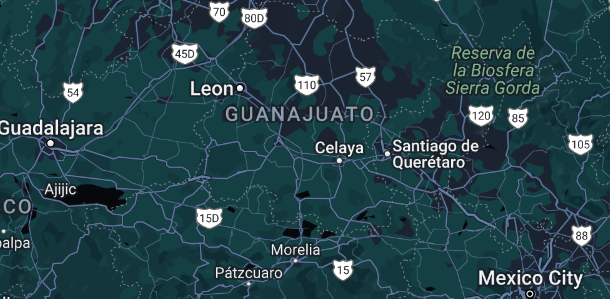Disappearances surge in Mexico during first half of year
July 16 (UPI) -- Mexico recorded 7,399 missing persons cases in the first half of 2025, marking a nearly 18% increase from the same period last year, according to the National Registry of Missing and Unlocated Persons.
Between January and June, monthly reports consistently exceeded 1,000 cases, peaking in March at 1,279 and May at 1,377. The sustained trend reflects a steady escalation of the crisis nationwide.
Mexico City recorded the highest number of disappearances during that period, with 1,099 cases -- an 88% increase from the same period in 2024.
It was followed by the State of Mexico, with 1,063 cases, and Sinaloa, with 519. Michoacán, Baja California, Sonora, Jalisco, Guanajuato and Nuevo León -- states marked by high levels of violence and the presence of organized crime -- each reported between 325 and 467 cases.
Related
Disappearances in Mexico are part of a complex crisis that has developed over the past two decades. The issue is driven by a combination of factors, from organized criminal activity to systemic impunity, according to government reports, academic studies and human rights organizations.
According to the National Search Commission and international organizations, more than 98% of cases remain unresolved in court.
The systemic impunity has created an environment in which perpetrators know their actions carry no legal consequences, and families are forced to take on investigative roles. Search collectives have become the backbone of the fight against disappearances in Mexico, locating remains and demanding justice.
One of the most prominent search collectives is Madres Buscadoras de Sonora (Searching Mothers of Sonora), which has become a national and international symbol.
Just last weekend, the group discovered a suspected training camp believed to have been used by organized crime to train or hold new recruits hostage. Human remains and about 200 articles of clothing were found at the site, according to Univision.
Since its founding in May 2019, Madres Buscadoras de Sonora has located more than 1,200 sets of human remains or bodies in clandestine graves and has pressed state and federal authorities to respond to reports of new burial sites.
Young people ages 15 to 29 make up the majority of those who disappear in Mexico,- followed increasingly by girls, teenagers and migrants, according to the Inter-American Commission on Human Rights.
In Jalisco, the state with the highest number of disappearances, authorities recorded a 63.6% increase in missing teenagers and a 72% rise in children ages 10 to 14 over the past two years, according to the University of Guadalajara.
Routes used for drug trafficking, human trafficking and contraband often overlap with major hotspots for disappearances in states such as Tamaulipas, Jalisco, Guanajuato and Guerrero, where criminal groups fight for territorial control.
In states like Zacatecas and Michoacán, authorities and search collectives have documented mass disappearances tied to violent clashes between criminal organizations.
In 2022, the total number of cases in the registry surpassed 100,000. The number increased by 7.3% in 2023 and 6.3% in 2024, and is projected to rise by 12% in 2025, according to a report by Red Lupa. Roughly 90% of all recorded disappearances in Mexico have occurred between 2000 and May 16.
Is Mexico utterly hopeless? Can they recover, like El Salvador? But there aren't enough jails in the world to hold all the criminals in Mexico.






























